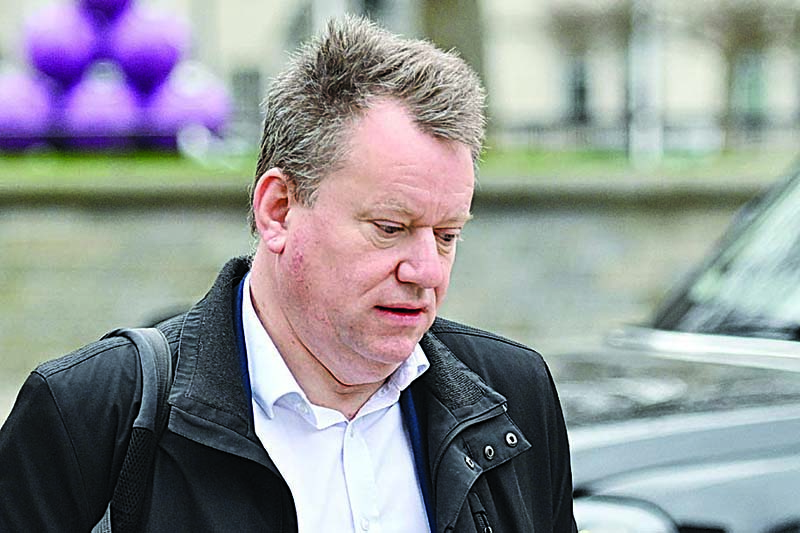LONDON: Boris Johnson once jokingly referred to his ally David Frost as the “greatest Frost since The Great Frost of 1709” when Britain and Europe suffered the harshest winter in centuries. But the man entrusted by Johnson to lead the country’s tortuous Brexit negotiations may yet put the British prime minister out in the cold.
After a torrid week for Johnson, Frost quit the government with immediate effect-and tellingly, not over Britain’s European Union departure and its aftermath. Frost, 56, is a firm believer in free markets and individual freedom, and said in his resignation letter that Johnson had strayed away from these values by implementing higher taxes and tougher coronavirus curbs. Johnson’s political opponents-from both within and outside his ruling Conservative party-are already circling, not least over claims of lockdown-breaking Christmas parties.
The loss of an ideological ally at such a crucial time increases the sense that the prime minister is running out of places to turn. It also represents a painful personal blow to Johnson, who long stressed that “you could not get a cigarette paper” between the pair. That largely stemmed from Frost’s time as Britain’s chief Brexit negotiator, where he was a key player in securing the deal that broke years of political deadlock and helped Johnson to his 2019 general election landslide.
Frost, a keen supporter of Brexit, was appointed as Johnson’s so-called EU “sherpa” shortly after the British leader took over from Theresa May in July 2019. He became chief trade negotiator after helping to finalise last year’s trade and cooperation deal, inked on Christmas Eve, just days before deadline.
A career diplomat with the foreign ministry, his resume features stints in Brussels in the 1990s and as ambassador to Denmark from 2006 to 2008. More recently, Frost spent nearly three years as chief executive of the Scotch Whisky Association and briefly became chief executive of the London Chamber of Commerce and Industry. He replaced May’s top EU adviser Olly Robbins, who drew repeated criticism from ardent Brexiteers for being too sympathetic to the bloc.
COVID clash
Frost shares Johnson’s “boosterish” view of Britain, making a point of wearing the Union Jack on his lapel and lanyard. His combative approach to Brexit negotiations and unapologetic defence of Conservative values have won him support with grassroots members.
They recently voted him the second most popular minister during a recent poll on influential blog ConservativeHome. But his recent intransigence during negotiations to resolve problems with implementing the part of the Brexit deal concerning Northern Ireland raised concerns that he could collapse the whole agreement.
His departure leaves unfinished and volatile business for his successor, and provides fuel to the increasing number of backbenchers opposed to Johnson’s policies. Frost grew up in Derby, central England, and read medieval European history and French at the prestigious Oxford University where he was one of Johnson’s contemporaries.
He became a critic of the EU after a stint as a young diplomat working in Brussels. Frost was one of Johnson’s first appointments when he returned to government as prime minister in 2019. But signs of a split began to appear in recent weeks, and a speech given last month was seen as a shot across the bows of the prime minister.
“The formula for success as a country is well known: low taxes, light-touch and proportionate regulation,” he told the right-wing Centre for Policy Studies think-tank, shortly after the government announced tax hikes. “And personal freedom and responsibility. I am very happy that free Britain, or at least merry England, is probably now the free-est country in the world as regards covid restrictions. No mask rules, no vaccine passports - and long may it remain so.”
The government last week reintroduced virus curbs and vaccine passes for large events. Frost is married to Harriet Matthews, a former British ambassador to Somalia, having divorced his first wife, an opera soloist, in 2018. —AFP
.jpg)




